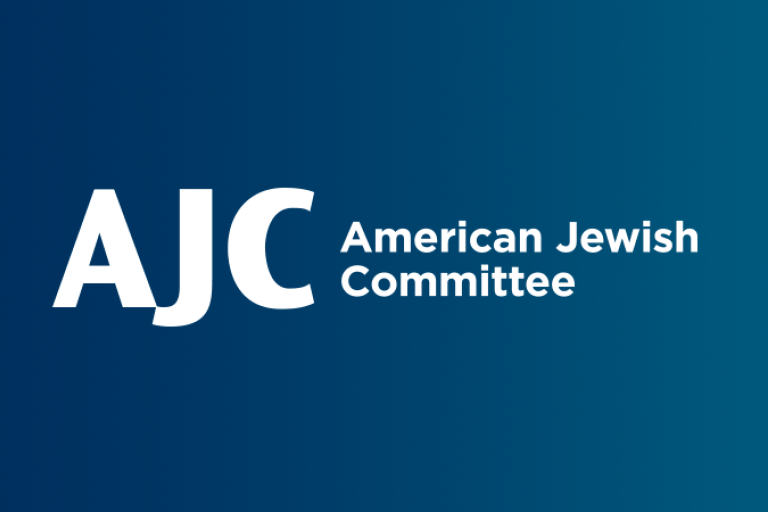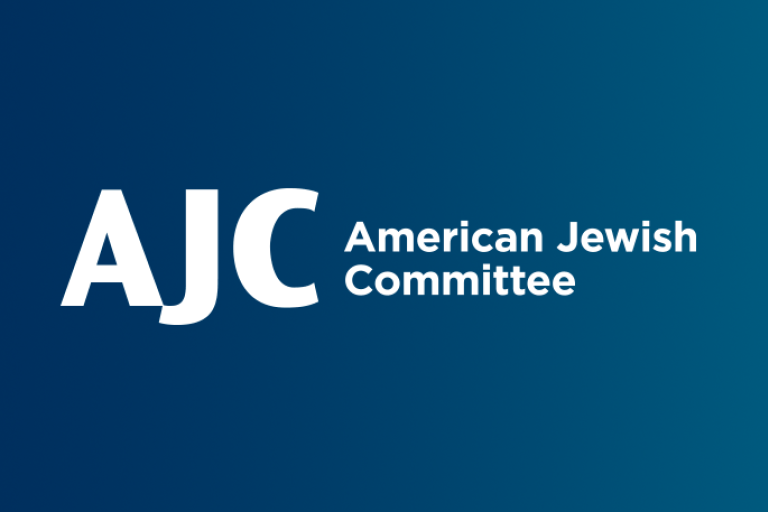May 26, 2021 — Washington, DC
This piece originally appeared in The Times of Israel.
By Meggie Wyschogrod Fredman
Over the last two weeks, young American Jews have awakened to the realities of antisemitism in the United States. We are in the midst of a well-documented spike in the frequency and severity of antisemitic incidents across the country, exacerbated by some Americans’ response to the recent conflict between Israel and Hamas. Huge numbers of young Jews, spanning from Gen Z to millennials and Jewish influencers, many of whom previously shied away from commenting on antisemitism, are taking to social media to call out this alarming rise. The response culminated in a viral campaign last week, modeled after last summer’s #blackouttuesday, in which users posted blue squares on social media to call attention to the surge of antisemitism.
The past year has been an inspiring time to be a young American and to be a progressive. The mainstream has become sensitized as never before to anti-Blackness, transphobia, and anti-Asian hate. We have learned to inspect our own biases and assumptions. Now, Jews are asking for our non-Jewish allies to do the same: to stand with us, to ask questions, and to amplify Jewish voices. And many Jews are reviewing their own activist toolbox, trying to determine how and why we speak out.
As American Jewish Committee’s Deputy Director of Young Leadership and a young Jewish woman who is active in many progressive spaces, I’ve found myself conflicted. I admire the number of young Jews who are posting and speaking up about antisemitism. It’s been refreshing given that the fight against antisemitism is often a lonely one. However, many of my Jewish peers choose to stay quiet, fearing that raising the issue will seem “too controversial” or “too Jewish.”
Others are not prepared to effectively engage. I have been inundated with messages from extremely bright friends and peers from across the political spectrum, asking how to respond to a given antisemitic tweet, post, or comment on their respective feeds. These are not uninformed individuals. My friends, young Jews who work at startups, law firms, in medicine, tech, and education, who have undergraduate and graduate degrees from prestigious universities feel woefully ill-equipped to address antisemitism, and that’s just on social media.
So, how do we fight antisemitism? Let me tell you now, your well-written Instagram post alone won’t do it. What will make a change is pairing your post with action. Addressing antisemitism involves community engagement, education, and a commitment to speak up beyond Instagram and beyond the performative activism of this moment. Yes, antisemitism is committed by non-Jews, but amplifying its horrific existence and manifestations, and enlisting allies to fight it must be the role of each and every young Jew.
Here are four steps that all young Jews should take to combat growing antisemitism here in the U.S.:
- EDUCATE YOURSELVES – That young Jews in 2021 don’t feel capable of responding to antisemitism online or elsewhere is alarming. Antisemitism is a problem that needs to be solved by all of civil society, but as Jews we need to be able to call it out when others won’t. Dedicate yourself to reading online resources, many extremely accessible at AJC.org, including this critical piece by AJC CEO David Harris about the three predominant sources of antisemitism, as well as works by Deborah Lipstadt and the late Rabbi Lord Jonathan Sacks that give historical overviews of antisemitism. Also, remember that misinformation about antisemitism on social media is rampant. Do the work and only share credible resources.
- SPEAK OUT – Yes, social media posts can start conversations and raise awareness. However, we need young Jews to speak out beyond social media, in all arenas where antisemitism occurs: in your classroom, in your friend group, and in the media. That includes times when it may be embedded in anti-Zionist rhetoric, when it comes from the political left or right, even when it’s not politically convenient to you, and when it comes from other marginalized groups whose members we would rather defend than castigate. Calling out hate is exhausting but our silence fosters complacency. Speaking out online can feel daunting, but it doesn’t need to be. You can join a number of ongoing community-based initiatives including AJC’s #WheresTheOutrage campaign.
- HOLD OUR ELECTED OFFICIALS ACCOUNTABLE – As young Jews, your vote matters and you should pay close attention to how your elected officials respond to antisemitism. Thank your members of Congress who call out antisemitism. Write to those who are silent and politely insist that they speak out. For those who are perpetuating antisemitism on the left or right, make that a part of your consideration when you vote, even if you may appreciate their other positions. If we don’t make fighting antisemitism a political priority, we can’t expect anyone else to do so.
- SUPPORT – Those shocking statistics you see quoted on social media about antisemitism, the government leaders who have denounced antisemitism on social media, the online educational resources people are sharing — none of that just happens. These are the results of organizations like AJC doing this work 365 days a year, when the spotlight is on and when it isn’t. This includes years of investing in surveys and hate crime reporting efforts, relationships built with elected officials, and creating fact-based efforts to expose the world to the realities of antisemitism. Support these critical organizations. Do so financially, but also through legislative and advocacy campaigns. Get involved!
The best way to combat antisemitism is dedicating yourself to it every day, even when the spotlight isn’t on the issue, and even when it’s not having a viral moment. As young Jews, we owe it to our future.
Meggie Wyschogrod Fredman is the American Jewish Committee (AJC) Deputy Director of Young Leadership.


